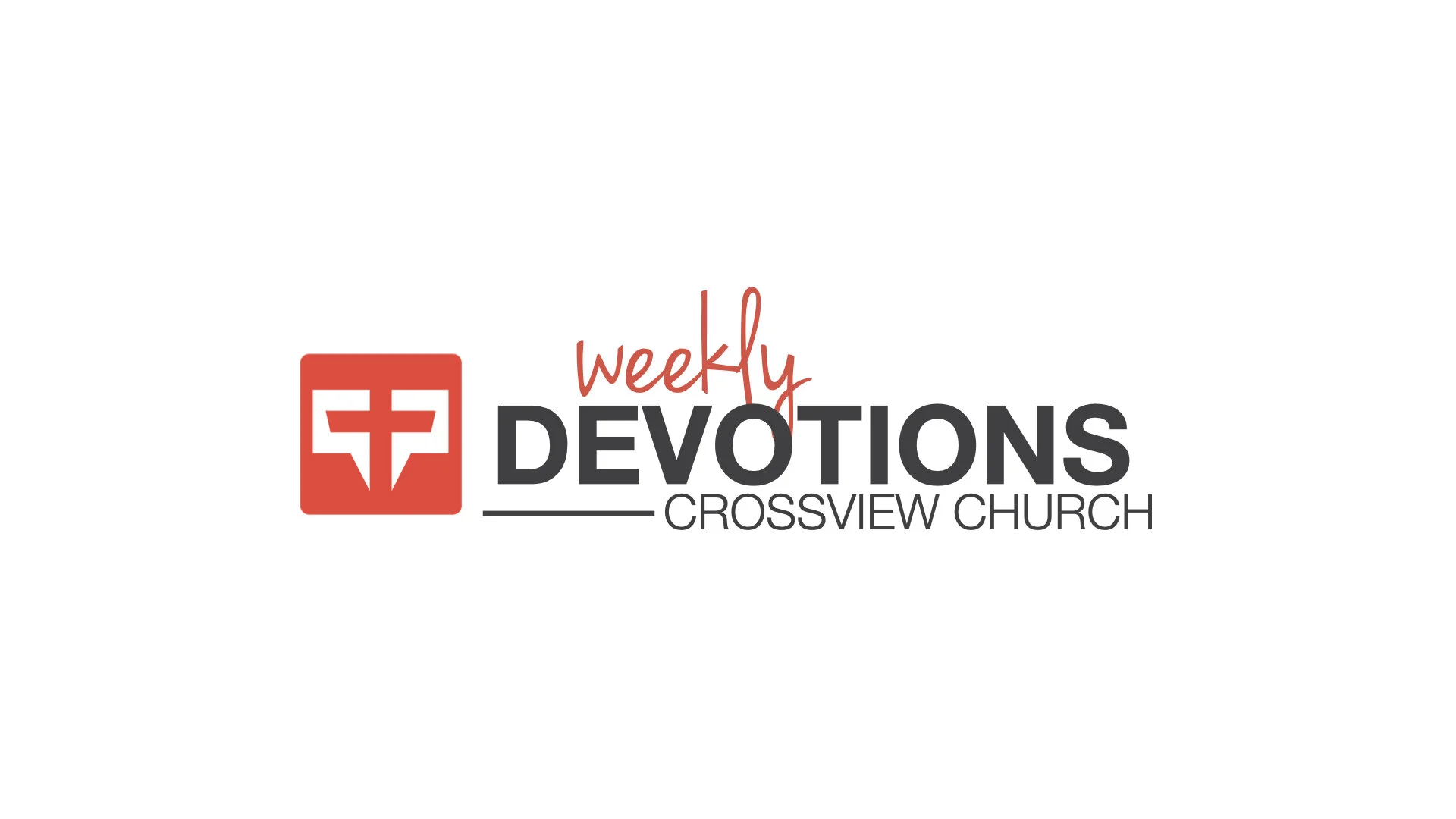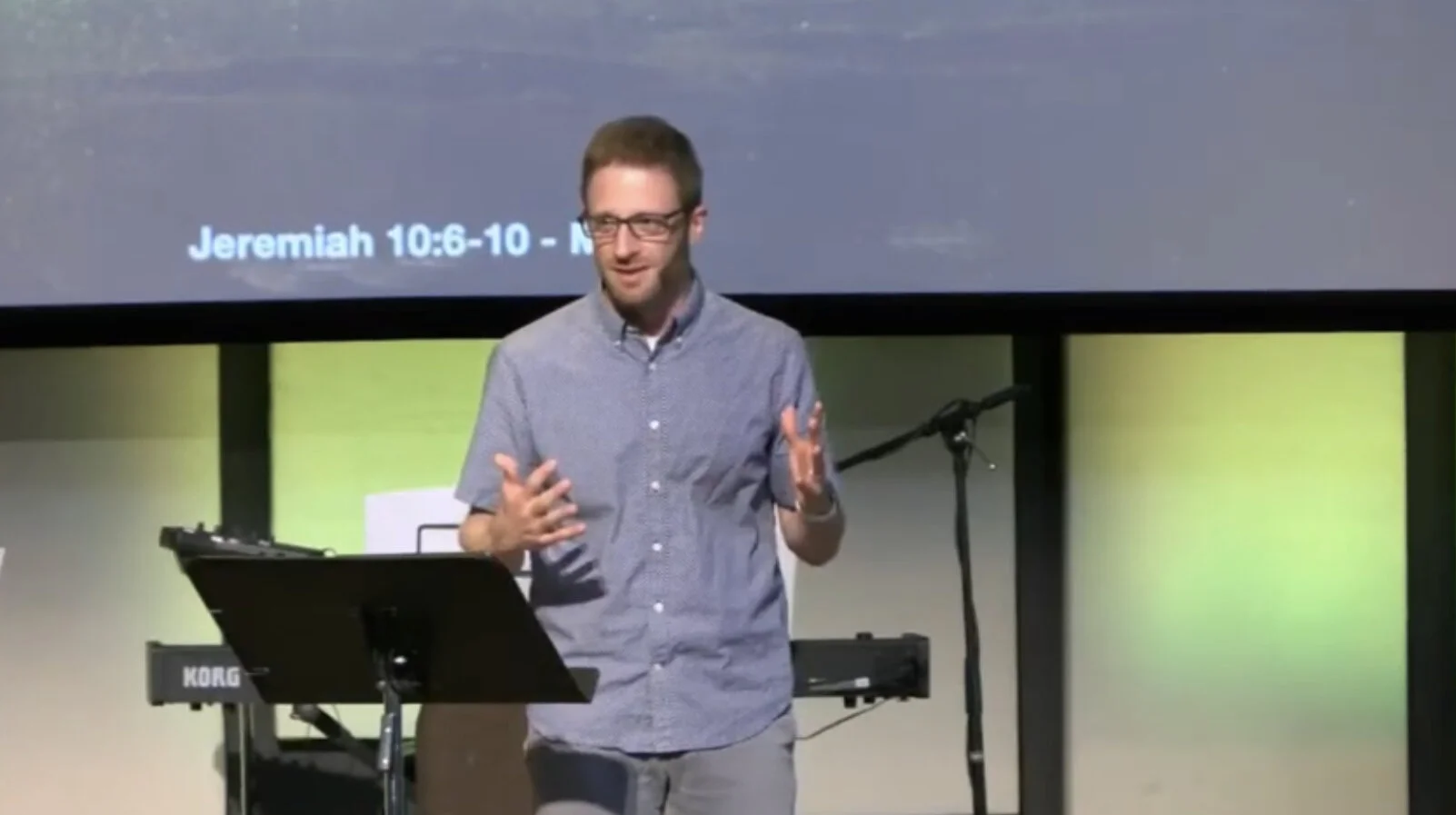This weeks devotion includes excerpts of Bishop Matt Whitehead’s article on God Given Revelation. You can read the entire article at the link found in the resources section below.
We live in a culture where we need to be clear about our commitment to fully align our lives and our movement on the unshakable foundation of God’s Word. We hold unwaveringly to the conviction that the Bible is the inspired Word of God. As with any foundation, it is necessary to the strength and stability of our movement. Without our strong foundation, we will crumble.
For that reason, I want to share with you reminders of our beliefs about the Word of God. I’ll also share thoughts about the very nature of God’s Word and why it is critical that we are unified — of one mind — in how we approach and interpret Scripture in our day.
Free Methodists take the Scriptures seriously. Our Book of Discipline makes this clear:
The Bible is God’s written Word, uniquely inspired by the Holy Spirit. It bears unerring witness to Jesus Christ, the living Word. As attested by the early church and subsequent councils, it is the trustworthy record of God’s revelation, completely truthful in all it affirms. It has been faithfully preserved and proves itself true in human experience.
The Scriptures have come to us through human authors who wrote, as God moved them, in the languages and literary forms of their times. God continues, by the illumination of the Holy Spirit, to speak through this Word to each generation and culture.
The Bible has authority over all human life. It teaches the truth about God, His creation, His people, His one and only Son and the destiny of humankind. It also teaches the way of salvation and the life of faith. Whatever is not found in the Bible nor can be proved by it is not to be required as an article of belief or as necessary to salvation. (¶108 of the 2019 Book of Discipline)
While these statements from our Book of Discipline clearly demonstrate our commitment to the authority of the Scriptures, we also must admit that biblical illiteracy is at epidemic proportions not only here in the U.S. but around the world. Thomas Schirrmacher, the newly elected secretary-general of the World Evangelical Alliance, made this sobering assessment in an interview with Leah Marie Ann Klett of The Christian Post: “The biggest crisis facing the evangelical, global church today is the growing lack of biblical literacy worldwide.”
According to the “State of the Bible 2020” report released by the American Bible Society and the Barna Group, U.S. adults who say they read the Bible daily dropped from 14% in 2019 to 9% in 2020.
Biblical illiteracy is a serious issue because anyone not grounded in the foundation of God’s Word begins to interpret societal issues, cultural trends, and even issues of church practice and discipline through views of the very culture and society with which the Bible often clashes. As Wesleyans, we believe that being grounded in God’s Word is essential for life in Christ and service in God’s kingdom.
I want to encourage you to embrace six vital truths about Scripture. As you read them, I also pray that you will see why it is equally vital that we renew our commitment to interpret culture through the lens of Scripture and not the other way around as we dwell in our true home — the Bible.
Scripture can be trusted:
The Bible is not just a collection of human thoughts — it contains God’s higher thoughts and ways (Isaiah 55:8–9). The Bible helps us know how to follow Him. If we trust God, then we know His Word “has our back.” It may conflict with our thoughts about things, but that is the beauty of it. The Bible is our guide for a holy life that reflects Jesus.
Scripture is our foundation:
Paul reminds Timothy that the Bible is our foundation. As I reminded us earlier, the purpose of a foundation is to provide support and stability for all that is built upon it. Paul tells us that our lives are “built on the foundation of the apostles and prophets, with Christ Jesus himself as the chief cornerstone. In him the whole building is joined together and rises to become a holy temple in the Lord. And in him you too are being built together to become a dwelling in which God lives by his Spirit” (Ephesians 2:20–22).
Let’s revisit the issue of biblical illiteracy in light of the Bible as our foundation. To what degree is Scripture integrated into our lives? As Moses gave Israel the law from God, he clearly stated how important it was to allow His words to infiltrate their daily living:
“These commandments that I give you today are to be upon your hearts. Impress them on your children. Talk about them when you sit at home and when you walk along the road, when you lie down and when you get up. Tie them as symbols on your hands and bind them on your foreheads. Write them on the doorframes of your houses and on your gates” (Deuteronomy 6:6–9).
Scripture disciplines us:
One of the reasons why we must be people of God’s Word is that our thinking and reasoning can be very selfish and self-centered. We need the perspective of God’s Word to help us see the world clearly.
Is discipline pleasant? No, but as parents we understand that parental discipline leads to our children’s self-discipline. The goal of disciplining our children is that they would be able to monitor their own behavior. So it is with us. It is good that we mature and grow, but always remain tenderhearted toward the Word of God. If we lose the capacity to be convicted, we risk becoming numb to the Word.
Scripture corrects error:
We who have come to Christ should know and understand how Scripture corrects error. Why? Because our faith journey usually begins with an encounter with God’s love that is so pure and holy that it reveals to us our own sin. The very idea that we need the saving grace of God in Jesus Christ is a clash of the power of holy love hitting sin head-on.
But it doesn’t stop there. The Scriptures are the foundation to correct error in the church. From cover to cover — the Old (First) Testament and New (Second) Testament, the Bible calls us out of error and into alignment with God’s truth.
The correction of Scripture is not just for individuals, it is for the body of Christ — the church. The Bible shows how God speaks to both individuals about their sin and to the whole community of His people about their collective sin. Because of this, we reject the notion that truth is relative and personal. Free Methodists embrace common truths that are essential to our lives as disciples of Jesus.
Scripture points us to Jesus:
Jesus is the central figure in Scripture. He is in the work of creation and will return again. Jesus is the Word made flesh and reflects the fulfillment of everything said in the law and prophets. Biblical illiteracy equates to improper assertions and beliefs about who Jesus is, what He said, what He meant by what He said, and how His commands are to frame our lives as we seek to mirror Him in all our ways.
Scripture is our true home:
When thinking of Scripture as our true home we need to think of “home” in broader terms than just the location where we live. Home is a place that gives us shelter and support. It gives us a sense of identity and purpose. It provides a place to come back to when we are feeling lost and alone. It is where we find others who are struggling along with us to experience unconditional love, grace, and mercy.
The Bible provides for us a home that can never be shaken, never be lost, and will never lead us astray.








